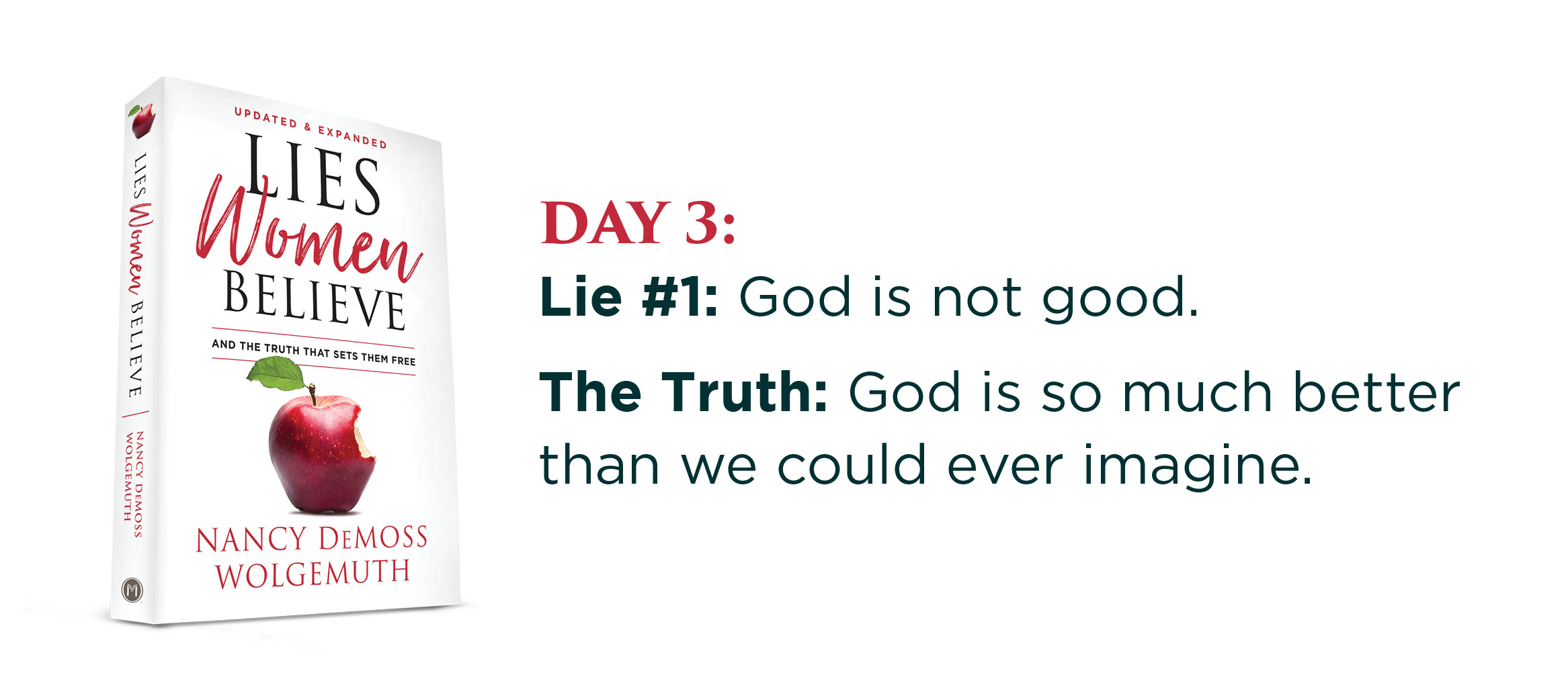Lies Women BelieveSýnishorn


Few women who identify as Christians consciously believe this lie. Most of us would never say, “God is not good.” We know better. Theologically, intellectually, we know that God is good. But deep in many of our hearts, there lurks a suspicion that He may not really be good—at least, that He has not been good to us.
I believe this lie is at the core of much of our wrong thinking about God. In essence, this is the lie Satan used to seduce Eve back in the garden. God had blessed the man and woman and created a whole paradise for their enjoyment. He had given them the freedom to enjoy the fruit on every tree—except one.
If you have any doubt about the goodness of God, go back and reread the first two chapters of Genesis. There you see a personal, generous, good God. Everything He made was good—because it was a reflection of His goodness.
When Satan wanted to tempt the woman to rebel against God, he did so by planting in her mind that seed of doubt about God’s goodness: “Did God actually say, ‘You shall not eat from any tree in the garden’?” (Gen. 3:1) The implication was that “God must not be good. If He were, He would not have denied you something you really wanted.”
When turbulence, disappointment, or pain comes into our lives, when we lose people we love, when things don’t go as we had hoped or planned, Satan tempts us to wonder, “Is God really good? If He were, how could He have let this happen?” or “Why would He have kept this [good thing] from me?”
Though we may never say it outright, we may particularly feel these doubts when we compare our circumstances with the experience of others around us:
● “God is good to others, but He doesn’t want good for me.”
● “God may help others, but He doesn’t have my best interests at heart.”
● “God may delight in blessing others, but He seems to enjoy seeing me suffer.”
And when we look around at this fallen world, where wars, terrorism, sex trafficking, and natural disasters are a reality, we may be especially likely to fall for the Deceiver’s negative pitch: “How could a truly good God let the Holocaust take place? Or 9/11 and other terrorist attacks? What about mass shootings?”
Once we doubt the goodness of God, it’s becomes easy for us to feel justified in making our own decisions about right and wrong. The Truth is, God is good. Whether or not His choices seem good to us, He is good. Whether or not we feel it, He is good. Whether or not it seems true in my life or yours, He is still good.
And God doesn’t gain any pleasure from our suffering. In fact, because He loves us, He suffers when we suffer. He is not removed from our suffering, but is compassionate toward us.
~Nancy DeMoss Wolgemuth
Questions:
● What realities have sometimes tempted you to believe that God is not good?
● When your feelings tell you that God is not good, what evidence of His goodness can you hold onto? What verses or biblical examples show His goodness?

Ritningin
About this Plan

The Truth may not change your circumstances, but it will change you. The Truth will set you free. In this 5-day devotional, Nancy DeMoss Wolgemuth exposes some areas of deception most commonly believed by Christian women—lies about God, sin, priorities, marriage and family, emotions, and more. She then offers the most effective weapon to counter and overcome Satan's deceptions: God's truth!
More








